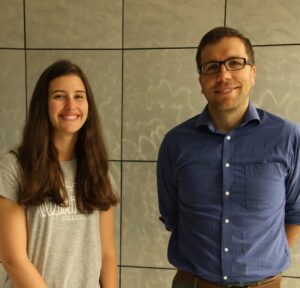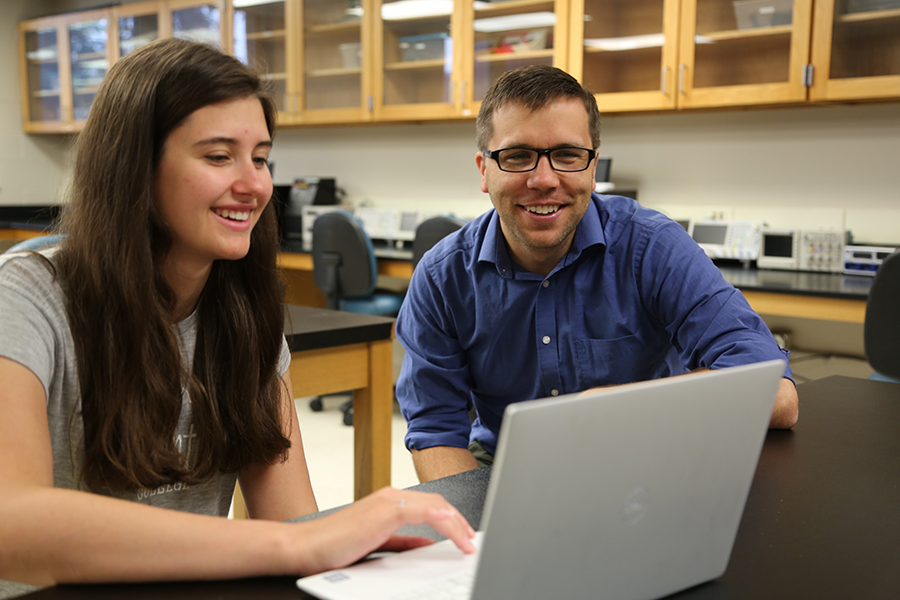Meghan Williams ’23 is working on transforming an Elizabethtown College Engineering course that previously operated on a percentage-based grading scale to measure performance through a student’s success by their mastery of a pre-determined skill set through a Mastery-Based Learning course structure.
The independent student research and collaboration with an Etown faculty mentor is part of the Summer Creative Arts and Research Program (SCARP) program.
Title of Research
Mastery-Based-Learning to Study Anxiety and Belonging in Circuit Analysis (EGR 210)
Student Researcher
Meghan Williams ’23 (Physics Secondary Education major)
Faculty Mentor
Mark Brinton, Assistant Professor of Engineering and Physics
What are you researching?
Meghan: We are developing course materials to transition EGR210 (Circuit Analysis) to a mastery-based-learning course and developing research tools to study how mastery-based-learning affects student test anxiety and classroom belonging.
Why did you choose this topic?
Meghan: I was excited to work on this project with Dr. Brinton because it matched my interests in both science and education.
What is the most interesting aspect of this research?
Meghan: As an Education major, it is interesting to learn more about different curriculums and how these differences impact students.
How has your faculty mentor helped you?
Meghan: Dr. Brinton has been active in guiding me through the research process and providing me with feedback as we progress through this project.
Hear from the faculty mentor – Mark Brinton
“This summer, we have been working to great mastery-based learning tools for my classroom, and set up surveys to study how mastery-based learning affects student anxiety and sense of belonging,” Brinton said. “The goal of this research is to show that mastery-based learning (or assessment) improves student mental health and sense of belonging in STEM fields.
“Anxiety is the number one issue college students face. Engineering students and underrepresented students are more likely to experience stress and anxiety, and may be less likely to seek help. Anxiety can impact physical, cognitive and emotional well-being, and eventually even limit professional opportunity so we hope to show that mastery-based learning is one tool educators can use to reduce college student anxiety.”

